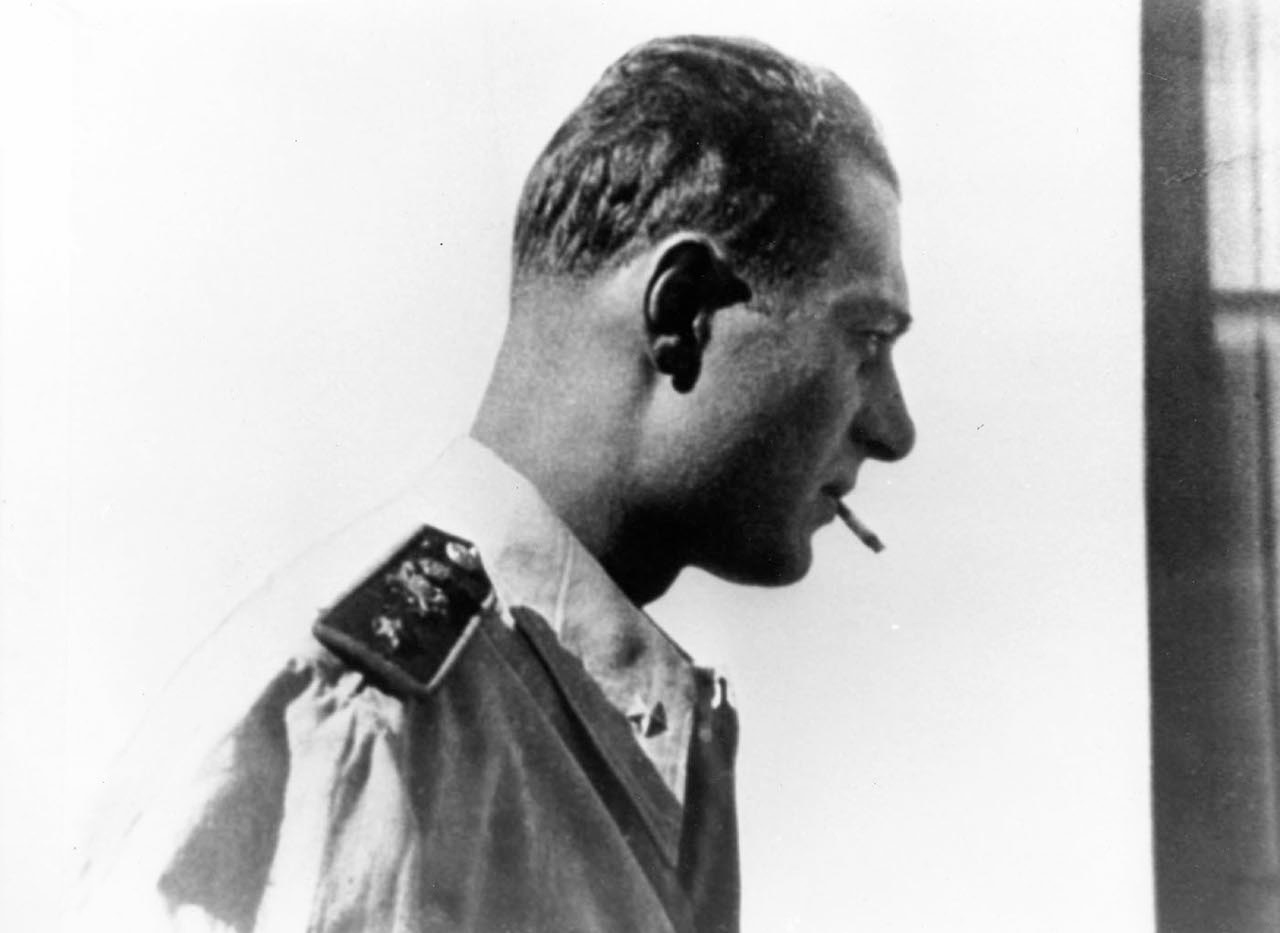
During the International Women’s Day March on March 8 in Milan, Italy, a feminist group known as Non Una di Meno, Not a Minor, covered a revered statue of Italian journalist Indro Montanelli with pink, washable paint. A year before the words “child rapist” were written underneath the statue. These acts of women’s right protest have started a dialogue in Italy about its colonial past and its representation of its so-called heroes.
A Real Action Hero?
Throughout his famed life, Indro Montanelli, described as the “witness of a century” participated in most of Italy’s historical events as if an action hero. He escaped a death sentence in the Second World War through Switzerland, he intermingled with spies from both sides, he fought against fascism, a personal enemy of Mussolini, he was even shot four times during the Years of Lead, a time of terrorism in Italy during the 1970s and 1980s. It seems his legacy is one of escaping death in time to report on the events, bringing truth to the Italian people. In order to celebrate such a life, in Milan there is a park and a statue dedicated to Montanelli. This is how his life is told, but there is another event Montanelli participated in—Mussolini’s colonial Abyssinian campaign in 1936.
A Different Story

As a twenty-five year old soldier, Montanelli married a 12, possibly 14, year old girl bought from her father along with a horse and a gun. Though he publicly discussed the matter multiple times throughout his life, never once did he show any public remorse or genuine understanding of why this action was problematic, such underage rape, slavery, colonial violence, and morally repugnant. It was a commonplace action for a “temporary relationship” between an Italian colonizer and a young African girl known as Madamato banned in 1937. For some reason, this detail of Montanelli’s life does not seem to have stuck in his public memory. A report of a 1969 interview Montanelli argues that in Europe such a relationship between a 12/14 year old and a 25 year old would be considered rape, but in Africa he claimed it was the normal age of marriage, thus there was no violence, as seen in the video below. In order to justify his actions, Montanelli repeatedly argues that the context, that in that time and place girls were married and ‘bought’. Even if this were true and not problematic within itself, it ignores the power dynamics at play between the colonizers and the colonized.
https://www.youtube.com/watch?v=N_2xZWu_Ak8
Italiani Brava Gente
Italy has a complicated relationship with its heritage and memory, especially for Mussolini’s Fascist empire leading colonial expeditions and the Second World War. This time in history is often forgotten or purposefully put into the category of Brava Gente. According to Krystyna von Henneberg in her article, Monuments, Public Space and the Memory of Empire in Italy, many students are surprised to learn that Italy had a colonial empire at all. In my courses in Bologna, most students agreed with this point of view. The events of the Second World War covered any disputes of colonialism and is barely mentioned on educational platforms. If not avoided then the subject of colonialism is put under Brava Gente. Brava Gente is a rhetorical device used since Italy’s colonial time to dismiss any negative attitude or guilt caused by the Italian government.
Basically, Italiani brava gente, good Italian people, meant that even if Italy’s actions weren’t so good, meaning as a colonizer, having a fascist regime and allying with Nazi Germany, that in comparison to other countries or actions, Italy’s weren’t so bad either. In comparison with other colonial empires such as Britain and France, Italy’s three colonies, Somaliland, Eritrea, and Ethiopia, were not so bad. It became a stereotype that even though Italy had a fascist regime and allied with the Nazis, that really the Italian soldiers just played music when they occupied Greece, thus removing any later guilt post-war.This category has proliferated through official discourse but also films and media, altering Italy’s memory and relationship with its past.
Painting the Government
Indro Montanelli’s colonial relationship with this young girl is exactly the type of memory the Italian government has spent decades trying to avoid. Even though Montanelli has spoken openly and without remorse about his actions, his image is not tainted nor does the government admit to its own atrocious colonial actions such as Madamato. During the Women’s Day March, the population of women challenged Indro Montanelli’s importance and image in Italian history, while also denouncing the habit of covering the open truth about Italy’s past and present.

What Now?
Should one event disrupt Indro Montanelli’s memory? What is that memory knowing this event? Does he need either a park or a statue? Some argue it is time to take the statue and his memory down. I am here to argue that marrying/buying a young girl at least needs to be included within his official memory. Credit needs to be given to this unknown woman, not as a unique experience but a commonplace in colonial behavior, even in Italy. The reputation of ‘not so bad’ should be removed and allow a larger and holistic colonial history to be placed within Italy’s educational system and official memory, not only relative in comparison. Humans are humans compared to any and everything. The women’s march re-opened the conversation about representing Italy’s colonial memory, but the conversation must led to action.
Featured: Public Domain https://www.flickr.com/photos/151208038@N06/32331269351/in/photolist-Rg1cYt-2dd1WgY-22rYCMP-23PoU18-22JAVrb-22JAPFU-QxJXk2-QAv7aH-RDqc3k-Rr1eAk-2dd1W2u-RLKyRf-RnsYgJ-RcCNJd-Rr1gB4-RfK4Ey-RAQUyh-2dd1Wc9-5wj37U-qcpJy7-4Z8jvT-SaVPT3-RfNfVd-RvbSnc-QdDXSW-RvbTgX-QVJCXb-QVJDvL-Rv9bvH-Rfi9xH-RgJjij-QdG44U-2dd1VdW-RrAmnQ-QdDE5G-QgqBZM-2ej6yWg-Rjrhb8-QdDMyj-Rjt6gP-QdD89U-2fjunJc-6DhGum-odnTZ9-hWLH1T-odGjEL-24J83o6-rx2MzP-RjopaV-2ej6yHR
